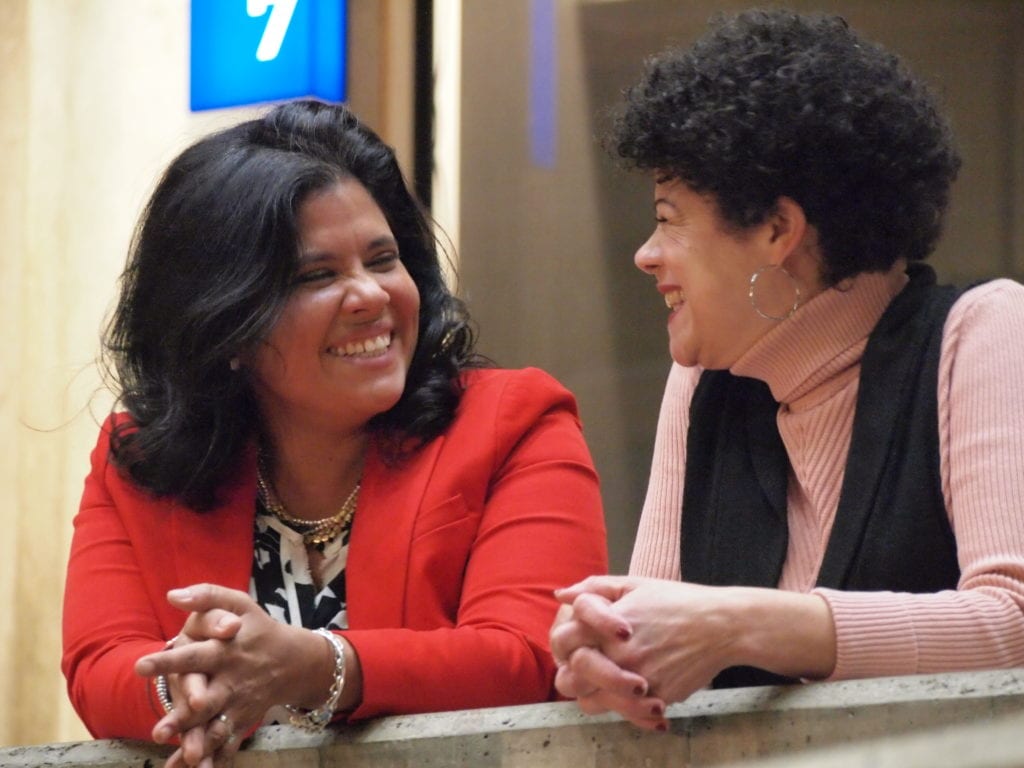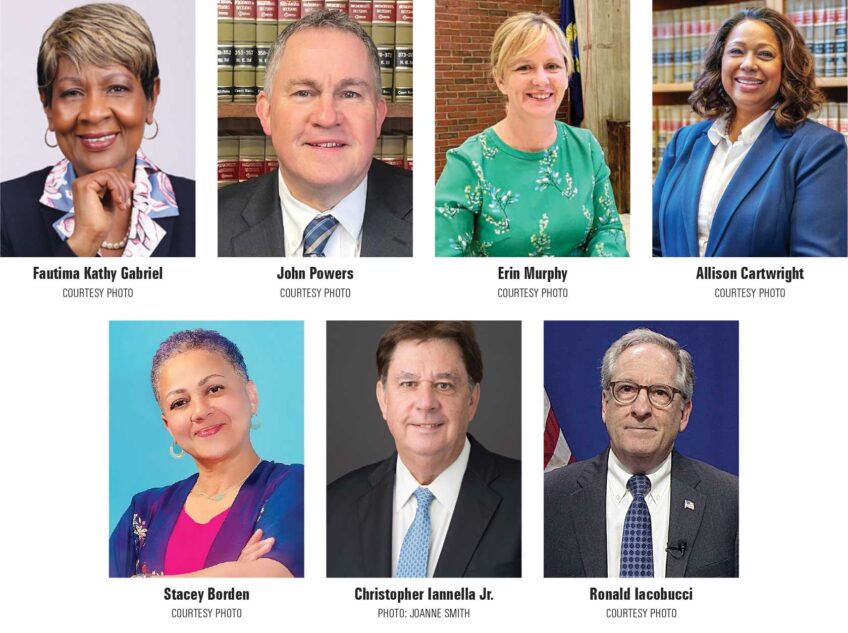It’s Mejia in the at-large recount
Election Department calls race by one-vote margin

It just may be the closest race in the history of the Boston City Council.
With just one vote separating Julia Mejia and Alejandra St. Guillen, the Boston Election Department called the election in favor of Mejia, bringing to a close a marathon, three-day recount process that saw dozens of volunteers, attorneys and city workers poring through the 67,011 ballots cast in the Nov. 5 election.
“I feel relieved because we worked so hard,” a tearful Mejia said after Election Commissioner Eneida Tavares announced the city’s decision. “There were so many people who joined our campaign because they wanted to believe in something. The fact that they have taken a risk, gone out and vote and their vote has really mattered speak volumes to how I feel.”
St. Guillen called for a recount after losing the Nov. 5 election by 10 votes in the city’s unofficial count. Her margin of loss was narrowed to five votes after absentee ballots were taken into account.

Volunteers check ballots.
Banner photo
Mejia, too, filed for a recount, gathering at least 50 signatures in each of the city’s 22 wards.
The recounting of the ballots began Saturday as a section of the second floor of City Hall was cordoned off with folding tables for each of the city’s 22 wards. Observers and attorneys for the Mejia and St. Guillen campaigns worked alongside city Election Department workers reviewing questionable ballots.
Voting errors can cause ballots to be misread, such as those on which bubbles are only partially filled in. Other errors can cause ballots to be discarded, such as those on which more than four at-large candidates are selected.
In at least 15 cases, voters filled in the bubble next to Mejia’s name, then wrote her name in the write-in space below. Gerry McDonough, an attorney working with St. Guillen’s campaign, argued that state law dictates that such ballots should be discarded
“It’s meaningful in this race, because it does affect the outcome,” McDonough said.
Boston election officials nevertheless allowed the ballots to be counted.
As attorneys and city officials debated electoral policy, Mejia, St. Guillen and their respective volunteers waited for the final tally. For the candidates and the campaign volunteers, many of whom had been working long hours through the electoral season, the recount was a grueling process.

Julia Mejia reacts as Election Commissioner Eneida Tavares announces a decision.
Banner photo
Despite the fierce legal wrangling, Mejia and St. Guillen remained cordial, and held a joint media availability in which both discussed the significance of the election, the first in which women and people of color secured the majority of the seats on Boston’s council.
“We’ve been in this work, both of us, for a long time and know that we’re looking at a vastly different city council,” St. Guillen said. “For us to have a representative council that really reflects the city is a win for the city. Either Julia or I would contribute to that diversity and representation. Today is a victory for Boston either way.”
Mejia said she wants to make sure that more Latina candidates get elected to the council.
“The whole idea is to build a pipeline to ensure that many more of us come behind,” she said. “It’s really an opportunity to inspire other Latinas to recognize no matter what the obstacles may be, or what their socioeconomic status looks like, whether they’re a single mom or whatever the case is, that if they strive to represent the city, they can do it too.”







